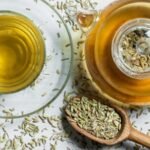Acne is a common skin concern that affects people of all ages. Among various remedies, vitamin E has been widely discussed as a potential solution. But the question remains: Is vitamin E good for acne? In this article, we’ll dive into how vitamin E can impact acne, its benefits, and whether it’s truly effective in clearing up the skin.
How Vitamin E Helps with Acne
When it comes to skincare, vitamin E is often praised for its antioxidant properties. These properties play a crucial role in protecting the skin from damage, which can be particularly beneficial for those struggling with acne. So, how does vitamin E help with acne? Here are a few key ways:
- Antioxidant Defense: Vitamin E is a potent antioxidant, which means it helps neutralize free radicals that can damage skin cells. This reduces inflammation and redness associated with acne.
- Moisturizing Benefits: Vitamin E is known to be a powerful moisturizer. It helps maintain the skin’s barrier, preventing dryness and flakiness that can exacerbate acne.
- Healing Properties: Vitamin E promotes skin healing, which may aid in reducing acne scars over time.
Can Vitamin E Reduce Acne?
The answer to “Is vitamin E good for acne?” is yes, but with some limitations. Vitamin E can help improve skin texture and reduce acne scars due to its healing properties. However, it might not be the ultimate solution for everyone dealing with active acne. Its effectiveness largely depends on your skin type and the severity of the acne. While it can support natural acne remedies, using vitamin E alone may not address the root cause of acne.
Vitamin E Benefits for Acne: What You Should Know
If you’re considering using vitamin E to manage acne, it’s essential to understand its benefits. Here’s why many skincare enthusiasts turn to Vitamin E acne treatment:
- Soothes Irritated Skin: Vitamin E can reduce inflammation, making it ideal for soothing irritated and sensitive skin.
- Fades Acne Scars: Topical vitamin E is often used to help fade post-acne marks and scars, contributing to a clearer complexion.
- Combats Dryness: One of the skin benefits of vitamin E is its ability to lock in moisture, preventing excessive dryness that can worsen acne.
How to Use Vitamin E for Clear Skin
There are several ways to incorporate vitamin E into your skincare routine to achieve clear skin:
- Topical Application: Using a vitamin E serum or oil directly on affected areas can provide targeted relief for acne scars and dry patches.
- Oral Supplements: Some people take vitamin E supplements to improve overall skin health from within, but it’s crucial to consult a dermatologist before starting any supplement regimen.
- Combination with Other Ingredients: For better results, combine vitamin E with other natural acne remedies, such as aloe vera or tea tree oil, known for their antibacterial and anti-inflammatory properties.
Best Vitamins for Acne-Prone Skin
While vitamin E has its benefits, it’s not the only vitamin that can help manage acne. Here are some of the best vitamins for acne-prone skin:
- Vitamin A: Known for its anti-inflammatory properties and ability to regulate oil production.
- Vitamin C: A powerful antioxidant that brightens the skin and promotes collagen production.
- Vitamin D: Helps reduce inflammation and can support overall skin health.
- Zinc: Known to reduce sebum production and kill acne-causing bacteria.
Topical Vitamin E for Acne Scars
One of the popular uses of vitamin E is for treating acne scars. Many people apply vitamin E oil or creams directly to scars, hoping to speed up the healing process. Although there is anecdotal evidence supporting the use of topical vitamin E for reducing scars, the results can vary from person to person. It’s recommended to do a patch test before applying vitamin E to the entire face to avoid any adverse reactions.
FAQ
- Is vitamin E good for acne?
- Yes, vitamin E can be beneficial for reducing acne scars and soothing irritated skin due to its antioxidant and moisturizing properties.
- How does vitamin E help with acne scars?
- Vitamin E promotes skin healing and regeneration, which may help fade acne scars over time.
- Can vitamin E reduce active acne breakouts?
- While vitamin E can reduce inflammation and redness, it might not prevent or completely eliminate active acne breakouts. It is often best used as part of a broader skincare routine.
- What is the best way to use vitamin E for acne-prone skin?
- You can use vitamin E as a topical oil or serum directly on scars or combine it with other ingredients known for treating acne, such as tea tree oil.
- Are there any side effects of using vitamin E for acne?
- Some people may experience irritation or breakouts when using vitamin E, especially if they have sensitive or oily skin. A patch test is recommended before full application.










